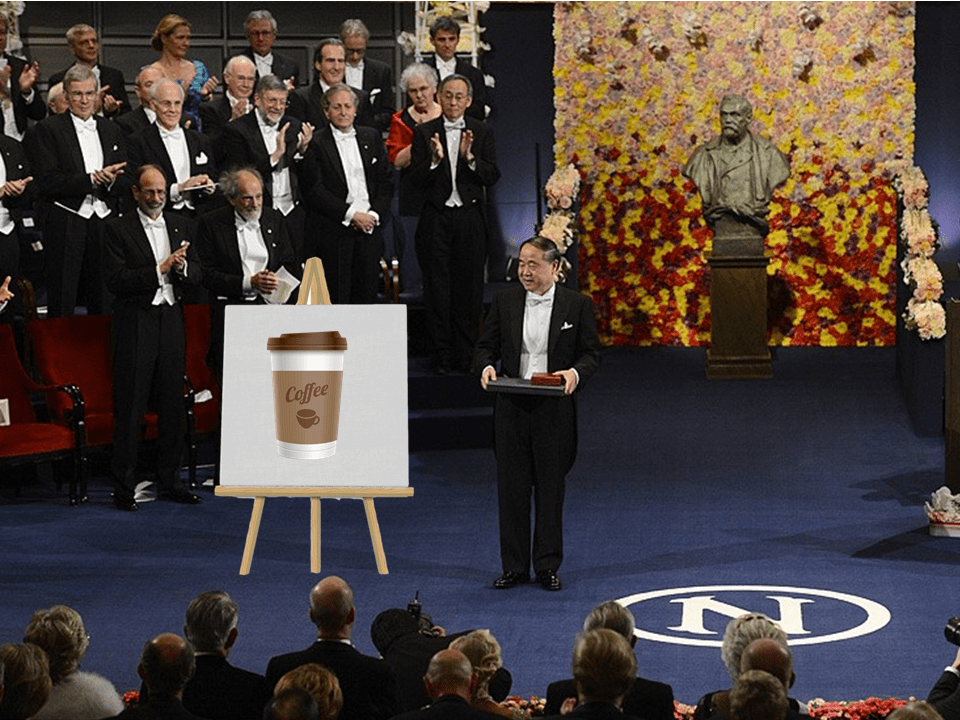NEW YORK, NY – There was a big surprise earlier this week when a cup of coffee was announced as the winner of the 2017 Nobel Prize in Medicine. This is the caffeinated beverage’s first award. Anna Wedell, Chair of the Nobel Committee for Medicine, held a brief press conference during which she acknowledged that a cup of coffee was long overdue for the prestigious award. “The Nobel prize is reserved for the most important and impactful advances in science,” Wedell said. “Well, nothing is more responsible for scientific advances in the field of medicine than a cup of coffee.”

Many suspected this would finally be a cup of coffee’s year to receive the Nobel Prize. A survey of the world’s most prominent researchers found that nothing would get done without cup after cup after cup of coffee. Shinya Yamanaka, a Japanese researcher who won the Nobel Prize in 2012, told Gomerblog he would have just stayed at home watching Seinfeld reruns instead of developing induced pluripotent stem cells without his morning, afternoon, and evening coffee.
A cup of coffee has been vying for the Nobel Prize for decades, always right there during the most important scientific discoveries but never quite getting over the hump. Many scholars wonder if Watson and Crick would have discovered DNA if it weren’t for Watson’s affinity for grande non-fat caramel macchiatos.

Would Jonas Salk have developed the polio vaccine without a daily supply of café lattes?

According to Wedell, the answer to these questions is “ABSOLUTELY NOT.” Wedell continued: “Nothing gets done without coffee. What’s the first thing that happens in a movie when the main character has a sudden epiphany? They put on a cup of coffee and GET TO WORK!”
Now that a cup of coffee has won the Nobel Prize, the front-runner for the award in 2018 appears to be sex.






